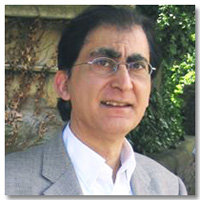Lisbeth Mikaelsson on Religion and Gender
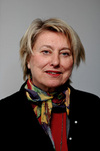
Gender has always played a significant role in the everyday lives of people. This is no more true than in the case of religion and there is a burgeoning field in religious studies dedicated to the study of the role of gender within religions. From dress codes to notions of purity to questions of the legitimate of power the topic of gender is one few scholars can afford to ignore. With a whole range of issues to be investigated Lisbeth Mikaelsson gives us an introductory insight into the complex topic of religion and gender: the issues it raises, the way we go about it, who’s doing it and why.
You can also download this interview, and subscribe to receive our weekly podcast, on iTunes. And if you enjoyed it, please take a moment to rate us.
Lisbeth Mikaelsson is professor of religion in the department of Archaeology, History, Cultural Studies and Religion at the University of Bergen. More recently she has shifted her specialism from religion and gender to new religious movements and is currently studying the Prosperity Movement. She has published a number of books and articles in Norwegian. In English she has published on the topic of Gender in Armin Geertz’ edited volume New Approaches to the Study of Religion and the journal Numen.
Tariq Modood on the Crisis of European Secularism
Secularism - the separation of religion and state - has been a central narrative in the European political sphere since the Enlightenment. But with renewed calls in some countries to affirm a Christian identity, and problems in accommodating some Muslim communities, is Western secularism under threat?
You can also download this interview, and subscribe to receive our weekly podcast, on iTunes. And if you enjoyed it, please take a moment to rate us.
Tariq Modood is Professor of Sociology, Politics and Public Policy at the University of Bristol. He is founding Director of the University Research Centre for the Study of Ethnicity and Citizenship, and co-founding editor of the international journal, Ethnicities. As a regular contributor to the media and policy debates in Britain, he was awarded a MBE for services to social sciences and ethnic relations in 2001 and elected a member of the Academy of Social Sciences in 2004. He also served on the Commission on the Future of Multi-Ethnic Britain, the IPPR Commission on National Security and on the National Equality Panel, which reported to the UK Deputy Prime Minister in 2010.
His recent publications include Multicultural Politics: Racism, Ethnicity and Muslims in Britain (Edinburgh University Press, 2005), Multiculturalism: A Civic Idea (Polity, 2007) and Still Not Easy Being British: Struggles for a Multicultural Citizenship (Trentham Books, 2010); and as co-editor, Secularism, Religion and Multicultural Citizenship (Cambridge University Press, 2009).
Is There a Crisis of Secularism in Western Europe?, which expands considerably upon the issues in this interview, is now available at http://www.bris.ac.uk/ethnicity/news/2012/36.html.
Readers and listeners might also be interested in Linda Woodhead's podcast on the Secularisation Thesis, and Bjoern Mastiaux's essay on the same topic.
Roundtable: Should Religious Studies be Multidisciplinary?
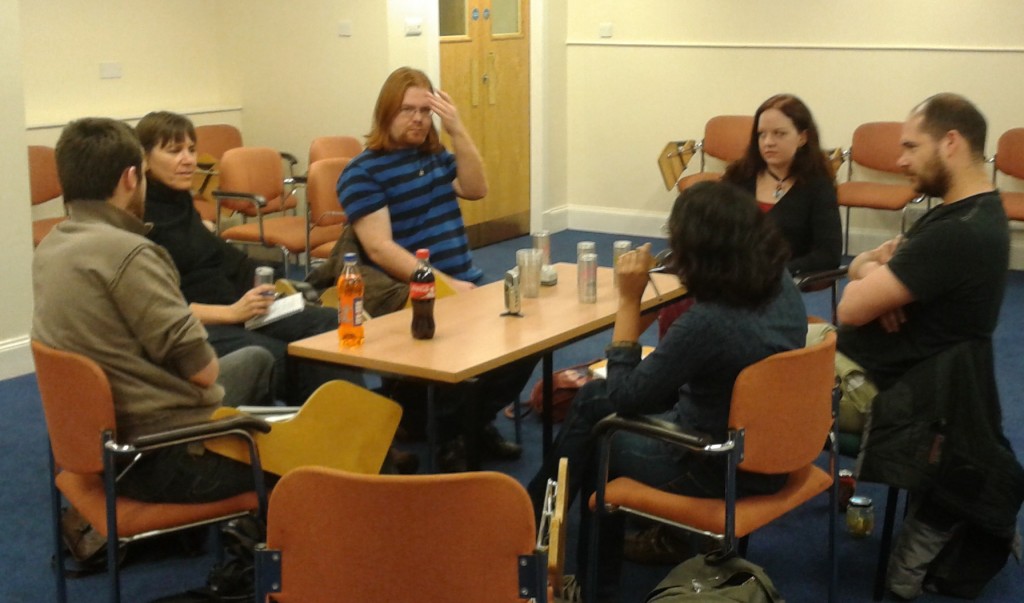
Ninian Smart was a proponent of the idea that Religious Studies should be "poly-methodical"; but should Religious Studies as a discipline incorporate theories and methodologies from multiple other disciplines, such as sociology, anthropology or history? When RS departments have run on an interdisciplinary basis, have they been successful?
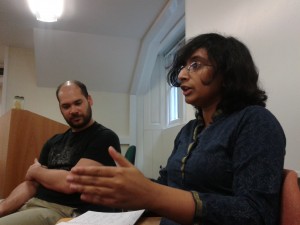
For this third roundtable, recorded at the University of Edinburgh, Jonathan tabled the motion. It quickly becomes apparent that Jonathan has an agenda; to push phenomenology as Religious Studies' sole methodology. Happily, the panelists were somewhat more multidisciplinary than normal, and were keen to disagree. Polite sparring ensues.
If you are new to the podcast – this is not what we usually do, although it is becoming increasingly common. If you are a regular listener – you might enjoy this, or you might not; either way, we are back to normal with Timothy Fitzgerald’s interview on Religion and Mystification on Monday. You can also download this roundtable, and subscribe to receive our weekly podcast, on iTunes. We would be delighted if you used this as an opportunity to continue discussion of this important topic on our Facebook page, on Twitter, or in the comments section below.
To continue the portrait of discussion...
Ethan: "The issue with this issue that we are talking about is that there is no issue."
As Nathan Schneider recently wrote on Religion Dispatches, "No matter what you “do with it,” really, the study of religion forces you to learn about geopolitics, languages, literatures, sciences, and histories." Is this a good thing? Should individual scholars multi-disciplinary? Or just departments? What is the difference between multidisciplinary and interdisciplinary?
Kevin: "We don't understand sociology as well as the sociologists; we don't understand psychology as well as the psychologists... they might be able to give us information we can use in a way we wouldn't have been able to gather."
Given that Religious Studies is currently vying for finances and for an academic identity and respect, is it important that we have one consistent methodological approach? Would this lead to commonality and manageability? Do we even need to be unique? Any why not turn to theory or content to provide that distinctiveness and autonomy?
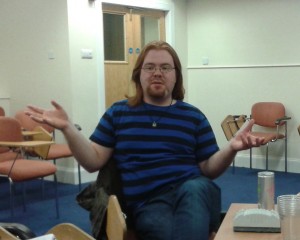
If we were to have just one methodology, what would it be? Phenomenology? Anthropology? Sociology? History? Psychology? Text Criticism? Neo-Tylorianism? Critical Religions? What would we "kick out"?
Towards the end of the discussion, the issues of bias and representation come to the fore. which is quite serendipitous given that our next compilation episode and roundtable are both focusing on the issue of whether scholars of religion should be critics or caretakers.
There is a lot of chat about historical approaches in this podcast, and if you would like to get a better handle on what this mysterious phenomenology actually is, then please do listen to this podcast with the oft-mentioned James Cox, or read Jonathan's response essay on the same topic.
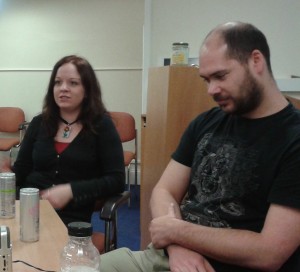
The Panelists:
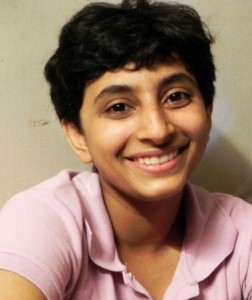 Krittika Bhattacharjee is reading towards an MSc in Religious Studies at the University of Edinburgh. She completed a BA in History from Delhi University and went on to do a second undergraduate degree in History at the University of Oxford. She is interested in the points of contact between tourism and religion, particularly in how tourists interact with, and in sites deemed religious. Her Masters dissertation studies tourists at Rosslyn Chapel. She will be joining a theatre company in Delhi as an actor after her MSc is concluded.
Krittika Bhattacharjee is reading towards an MSc in Religious Studies at the University of Edinburgh. She completed a BA in History from Delhi University and went on to do a second undergraduate degree in History at the University of Oxford. She is interested in the points of contact between tourism and religion, particularly in how tourists interact with, and in sites deemed religious. Her Masters dissertation studies tourists at Rosslyn Chapel. She will be joining a theatre company in Delhi as an actor after her MSc is concluded.
 Maegan C. M. Gilliland is a doctoral candidate at the University of Edinburgh. Her thesis focuses on the early Christian transmission of the Pauline Epistles through a text-critical evaluation and statistical analysis of the epistles as found within the extant writings of Clement of Alexandria. Her research interests include textual criticism, early Christian movements, the early Christian reception and transmission of religious texts and Ancient Near Eastern religious texts. Her forthcoming publications (2012) include three dictionary articles for the Lexham Bible Dictionary ("Form Criticism", "Redaction Criticism" and "The History of Writing in Mesopotamia").
Maegan C. M. Gilliland is a doctoral candidate at the University of Edinburgh. Her thesis focuses on the early Christian transmission of the Pauline Epistles through a text-critical evaluation and statistical analysis of the epistles as found within the extant writings of Clement of Alexandria. Her research interests include textual criticism, early Christian movements, the early Christian reception and transmission of religious texts and Ancient Near Eastern religious texts. Her forthcoming publications (2012) include three dictionary articles for the Lexham Bible Dictionary ("Form Criticism", "Redaction Criticism" and "The History of Writing in Mesopotamia").
Ethan Gjerset Quillen is a doctoral candidate in religious studies at the University of Edinburgh. His dissertation is on the evaluation of the categorically social, historical, and cultural attributes of Atheist identities in the United Kingdom from 1979 to 2012 using the novels of Ian McEwan as representative data. He earned a Bachelor of Arts from the University of California, Riverside in religious studies and a Master of Arts from California State University, Long Beach with an emphasis on 19th century American religious communities and New Religious Movements. He also holds two Master of Arts degrees from Baylor University – the first in American Studies, and the second from the J.M. Dawson Institute of Church State Studies. He has also written the essay Circular Academia: Navigating the Dangerous Waters of Term Re-Assignment for the Religious Studies Project.
 Liam Sutherland is a Religious Studies Postgraduate student at Edinburgh University undertaking a Masters by Research, on the relevance of E.B Tylor for the contemporary theory of religion, defining religion and modern scholars with a ‘Neo-Tylorian’ influence or affinity. He is a native of Edinburgh where he also completed his undergraduate degree in 2009, producing a dissertation on contemporary Indigenous Australian spirituality and the politics of land rights. Though he began in Politics, and took many Politics and school of Social Science courses, he quickly fell in love with Religious Studies! Liam has also written the essay An Evaluation of Harvey’s Approach to Animism and the Tylorian Legacy for the Religious Studies Project.
Liam Sutherland is a Religious Studies Postgraduate student at Edinburgh University undertaking a Masters by Research, on the relevance of E.B Tylor for the contemporary theory of religion, defining religion and modern scholars with a ‘Neo-Tylorian’ influence or affinity. He is a native of Edinburgh where he also completed his undergraduate degree in 2009, producing a dissertation on contemporary Indigenous Australian spirituality and the politics of land rights. Though he began in Politics, and took many Politics and school of Social Science courses, he quickly fell in love with Religious Studies! Liam has also written the essay An Evaluation of Harvey’s Approach to Animism and the Tylorian Legacy for the Religious Studies Project.
 What is Phenomenology? for the Religious Studies Project, as well as recording a number of interviews.
What is Phenomenology? for the Religious Studies Project, as well as recording a number of interviews.
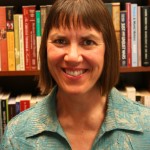 Dr Elizabeth Ursic is a professor of religious studies at Mesa Community College in Phoenix Arizona. Her research interests include gender, religion, and the arts. She is a Visiting Fellow at New College at the University of Edinburgh, currently writing a chapter on the 1980s Motherhood of God controversy in the Church of Scotland. She holds a PhD from Arizona State University and an MDiv from Yale Divinity School where she was a graduate fellow in the Yale Institute of Sacred Music.
Dr Elizabeth Ursic is a professor of religious studies at Mesa Community College in Phoenix Arizona. Her research interests include gender, religion, and the arts. She is a Visiting Fellow at New College at the University of Edinburgh, currently writing a chapter on the 1980s Motherhood of God controversy in the Church of Scotland. She holds a PhD from Arizona State University and an MDiv from Yale Divinity School where she was a graduate fellow in the Yale Institute of Sacred Music.
 "Roundtable Regular" Kevin Whitesides completed his B.A. in Religious Studies at Humboldt State University. He is currently developing an MSc dissertation at the University of Edinburgh on ’2012′ millennialism as part of a broader emphasis on countercultural transmission. Kevin has contributed articles to ‘Archaeoastronomy’ and ‘Zeitschrift fur Anomalistik’, has contributed chapters for two anthologies on apocalypse and prophecy, and has presented widely on the ’2012′ milieu at academic conferences and universities.
"Roundtable Regular" Kevin Whitesides completed his B.A. in Religious Studies at Humboldt State University. He is currently developing an MSc dissertation at the University of Edinburgh on ’2012′ millennialism as part of a broader emphasis on countercultural transmission. Kevin has contributed articles to ‘Archaeoastronomy’ and ‘Zeitschrift fur Anomalistik’, has contributed chapters for two anthologies on apocalypse and prophecy, and has presented widely on the ’2012′ milieu at academic conferences and universities.
‘Religion’ and Mystification
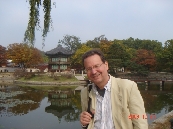 ‘Religion’ has proved a problematic category, difficult to define and difficult to translate into non-European languages. In this interview, Timothy Fitzgerald presents his critical deconstruction of religion as a powerful discourse and its parasitic relation to ‘secular’ categories such as politics and economics. Religion is not a stand-alone category, he argues; ‘religions’ are modern inventions which are made to appear ubiquitous and, by being removed to a marginal, privatised domain, serve to mystify the supposed natural rationality of the secular state and capital. Feminist deconstruction of gender categories shows how power constructions which serve male interests come to appear as natural and inevitable, a powerful analogy to the mystification of power relations by the modern invention of religious and secular domains.
‘Religion’ has proved a problematic category, difficult to define and difficult to translate into non-European languages. In this interview, Timothy Fitzgerald presents his critical deconstruction of religion as a powerful discourse and its parasitic relation to ‘secular’ categories such as politics and economics. Religion is not a stand-alone category, he argues; ‘religions’ are modern inventions which are made to appear ubiquitous and, by being removed to a marginal, privatised domain, serve to mystify the supposed natural rationality of the secular state and capital. Feminist deconstruction of gender categories shows how power constructions which serve male interests come to appear as natural and inevitable, a powerful analogy to the mystification of power relations by the modern invention of religious and secular domains.
You can also download this interview, and subscribe to receive our weekly podcast, on iTunes. And if you enjoyed it, please take a moment to rate us.
Timothy Fitzgerald is Reader in Religion at the University of Stirling, and organiser of the Critical Religion Category Network (CRCN). His 2000 book, The Ideology of Religious Studies (Oxford University Press) was the topic of a one day symposium organized by the Department of Religious Studies, University of Manchester. More recently, he published Discourse on Civility and Barbarity: a critical history of religion and related categories (Oxford University Press, 2007), and the edited volume Religion and the Secular: historical and colonial formations (Equinox, 2007).
Ariela Keysar on “What does ‘belief’ mean to Americans?”
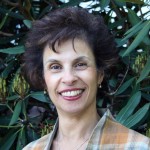 'Belief' lies at the core of E.B. Tylor's canonical definition of religion as belief in 'spiritual beings'. However, in the last decades of the twentieth century the concept became unfashionable in the social sciences, with scholars from all parts of the world denouncing its centrality as a Western, Protestant bias which has limited application to other religions. In recent years, however, there has been something of a resurgence of interest in 'belief' and Chris recently attended an international symposium entitled "What does it mean to believe?" at the University of Kent, Canterbury, UK, organised by Dr Abby Day, and the British Council. At this symposium, Professor Ariela Keysar presented a paper entitled "What does 'belief' mean to Americans?", and later on discussed the content of this paper with Chris for this podcast.
'Belief' lies at the core of E.B. Tylor's canonical definition of religion as belief in 'spiritual beings'. However, in the last decades of the twentieth century the concept became unfashionable in the social sciences, with scholars from all parts of the world denouncing its centrality as a Western, Protestant bias which has limited application to other religions. In recent years, however, there has been something of a resurgence of interest in 'belief' and Chris recently attended an international symposium entitled "What does it mean to believe?" at the University of Kent, Canterbury, UK, organised by Dr Abby Day, and the British Council. At this symposium, Professor Ariela Keysar presented a paper entitled "What does 'belief' mean to Americans?", and later on discussed the content of this paper with Chris for this podcast.
You can also download this interview, and subscribe to receive our weekly podcast, on iTunes. And if you enjoyed it, please take a moment to rate us.
In his keynote address, right at the very start of the symposium, Gordon Lynch raised what he dubbed the erroneous assumption prevalent throughout much of social science that belief is universal, consistent and articulate-able. As Keysar's data from a number of large-scale, quantitative studies shows, belief changes over time; it is situational, practical, functional, generational; it varies geographically; it varies across and within religious traditions; it has meaning outwith religion, and may be meaningless within; beliefs about the meaning of life may play very little role in daily life.
Listeners may be interested in the following excellent resources mentioned in the podcast which are freely available online:
- The Results of the American Religious Identification Survey (ARIS) 2008
- American Nones: The Profile of the No Religion Population
- International Survey, Worldviews and Opinions of Scientists: India 2007-08
Dr. Ariela Keysar, a demographer, is Associate Research Professor of Public Policy and Law and the Associate Director of the Institute for the Study of Secularism in Society and Culture (ISSSC) at Trinity College in Hartford, Connecticut. She was a principal investigator of the American Religious Identification Survey 2008, the largest survey of religion in the U.S., covering over 50,000 respondents. She was also a principal investigator of the ISSSC web survey of Indian scientists, which is the first in a series of studies of worldviews and opinions of scientists around the world. Ariela Keysar was the study director of the American Jewish Identity Survey 2001 and the associate director of the Longitudinal Study of Young Adults Raised in Conservative Synagogues 1995-2003.
Dr. Keysar is the co-editor of most recently: Secularism, Women & The State: The Mediterranean World in the 21st Century; also Secularism and Science in the 21st Century and Secularism & Secularity: Contemporary International Perspectives as well as co-author of Religion in a Free Market and The Next Generation: Jewish Children and Adolescents.
Listeners may also be interested in our interview with Callum Brown, who is also looking at large-scale surveys, and our roundtable discussion on the issue of using such surveys for research purposes.
Titus Hjelm on Marxist Approaches to the Study of Religions
The foundation of irreligious criticism is: Man makes religion, religion does not make man. Religion is indeed the self-consciousness and self-esteem of man who has either not yet won through to himself or has already lost himself again. But man is no abstract being squatting outside the world. Man is the world of man, state, society. This state and this society produce religion, which is an inverted consciousness of the world, because they are an inverted world. Religion is the general theory of this world, its encyclopedic compendium, its logic in popular form, its spiritual point d’honneur, its enthusiasm, its moral sanction, its solemn complement and its universal basis of consolation and justification. It is the fantastic realization of the human essence since the human essence has not acquired any true reality. The struggle against religion is therefore indirectly the struggle against that world whose spiritual aroma is religion.
Religious distress is at the same time the expression of real distress and the protest against real distress. Religion is the sigh of the oppressed creature, the heart of a heartless world, just as it is the spirit of a spiritless situation. It is the opium of the people.
The abolition of religion as the illusory happiness of the people is required for their real happiness. The demand to give up the illusion about its condition is the demand to give up a condition, which needs illusions.
This famous quotation from German political philosopher Karl Marx's unfinished Critique of Hegel’s Philosophy of Right (1843) encapsulates his controversial and complex understanding of the social function of religion. It was a significant part of his theory of alienation - the worker was, in capitalist society, separated from their labour and its products; work had become outside of them, alien. Religion was part of the mechanism by which the bourgeois perpetuated this alienation and therefore the capitalist status quo. Life was unfair, but this was the price of entry into Heaven when you die. As Marx saw it, when the workers were no longer alienated from their work and society made equal, there would be no need for religion, and it would die away.
The theory, and in particular the decontextualised soundbyte, "Religion is the opium of the masses", was practically a matter of faith among the left-leaning liberal intelligentsia of the 60s and 70s, but the popularity of Marxist analyses of religion (and society in general) lost capital during the 80s and early 90s with the fall of the USSR and the Berlin Wall. What place, then, do his theories have in the contemporary academy, given society's reawakened concern with inequality? Marx's theory anticipated both the work of Émile Durkheim, founder of sociology, and an emphasis on power relations which would later be picked up by post-structuralist theorists including Foucault and Bourdieu, all of whom have a profound.influence on contemporary studies of religion.
You can also download this interview, and subscribe to receive our weekly podcast, on iTunes. And if you enjoyed it, please take a moment to rate us.
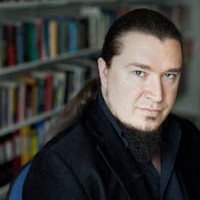 Titus Hjelm is Lecturer in Finnish Society and Culture at the School of Slavonic and East European Studies at University College, London. His doctoral dissertation, at the University of Helsinki, was on the construction of Satanism in the Finnish news media. His research interests are wide-ranging, however, and include the sociology of religion, news media, popular culture (particularly the Nordic heavy metal scene and vampire fiction), and social theory, including Marxist theories. His two most recent books are Perspectives on Social Constructionism (Palgrave Macmillan, 2010) and an edited volume titled Religion and Social Problems (Routledge, 2010). He is also bass guitar player for Thunderstone.
Titus Hjelm is Lecturer in Finnish Society and Culture at the School of Slavonic and East European Studies at University College, London. His doctoral dissertation, at the University of Helsinki, was on the construction of Satanism in the Finnish news media. His research interests are wide-ranging, however, and include the sociology of religion, news media, popular culture (particularly the Nordic heavy metal scene and vampire fiction), and social theory, including Marxist theories. His two most recent books are Perspectives on Social Constructionism (Palgrave Macmillan, 2010) and an edited volume titled Religion and Social Problems (Routledge, 2010). He is also bass guitar player for Thunderstone.
Apologies too for the background noise - we got locked out of our office.
Vernacular Religion
Images of Jesus on a slice of toast; Koran verses in an aubergine; statues which cry blood; Angel Colour cards and Atlantean crystal therapies; popular religious expressions are everywhere. Over the past decades, a number of scholarly terms have been coined for such phenomena - 'implicit religion', 'invisible religion', 'everyday religion' or, the topic of this interview, 'vernacular religion'. Each does different work, but each fundamentally acknowledges that what real people actually do on the ground, what they believe, what they identify with etc has a fundamentally greater impact upon religion as it exists in the real world than the discourses of theologians, philosophers and academics. In this interview, Marion Bowman showcases her fascinating research into the ways in which religion permeates everyday life, paying particular attention to the manifestations at the famous Glastonbury Festival.
You can also download this interview, and subscribe to receive our weekly podcast, on iTunes. And if you enjoyed it, please take a moment to rate us.
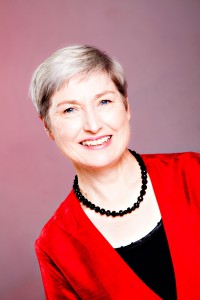 Dr Marion Bowman is Senior Lecturer in the Religious Studies department at the Open University, former president of the BASR and of the Folklore Society, and currently on the executive board of SIEF’s Ethnology of Religion Working Group.
Dr Marion Bowman is Senior Lecturer in the Religious Studies department at the Open University, former president of the BASR and of the Folklore Society, and currently on the executive board of SIEF’s Ethnology of Religion Working Group.
She began her academic career at Glasgow University, but switched to Lancaster University where she came under the influence of Professor Ninian Smart, a revolutionary figure who has acquired almost mythic status in the field of Religious Studies. Her research is concerned with vernacular/ folk/ popular religion - 'religion as it is lived' - contemporary religion (especially, New Age/Alternative Spirituality, Paganism, New Religious Movements, Vernacular Christianity) and contemporary Celtic Spirituality in Christianity, Paganism, Druidry, New Age/ Alternative Spirituality and New Religious Movements.
Marion's Publications include Vernacular Religion in Everyday Life: Expressions of Belief (2012) and Beyond the New Age: Exploring Alternative Spiritualities (2000). You can listen to Marion talking about airport chapels with Norman Winter at the Multi-Faith Spaces conference held at the University of Manchester.
David Voas on Quantitative Research
Sociological research has followed two broad paradigms - qualitative and quantitative. Qualitative studies seek depth, typically based on interviews and observation with a relatively small pool of subjects. Quantitative studies, on the other hand, survey a larger pool - in some cases, such as the UK National Census, practically the entire population of a country - relying on mass methods such as questionnaires with a limited set of questions and responses. Such data sets allow cross-analyses of large groups in ways that qualitative methods never could. But without the reflexivity and personal relationship of an interviewer, are quantitative methods compromised by the biases in the specific questions asked?
In our interviews with Callum Brown and Ariella Keysar, the team had a number of issues with the use of qualitative data in religious studies - which you'll know if you've heard our roundtable response recorded at the SOCREL conference this year. So we decided we needed to speak to an acknowledged expert, to lay out the advantages - and deal with the issues - with quantitative data in the study of religions. In his interview, David Voas deals with the criticisms strongly and with good grace, while laying out a compelling case for the place of quantitative research in the contemporary study of religions.
You can also download this interview, and subscribe to receive our weekly podcast, on iTunes. And if you enjoyed it, please take a moment to rate us.
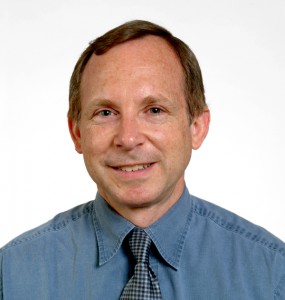
David Voas is Professor at the Institute for Social and Economic Research (ISER) at the University of Essex, and was formerly Simon Professor of Population Studies at the University of Manchester. He is the national programme director in Great Britain for the European Values Study and co-director of the British Religion in Numbers project (www.brin.ac.uk), an online centre for British data on religion. He serves on the editorial boards of the British Journal of Sociology and the Journal for the Scientific Study of Religion and on the council of the British Society for Population Studies.
Among his many publications, some relevant ones are Surveys of behaviour, beliefs and affiliation in Handbook of the Sociology of Religion, ed. J Beckford and NJ Demerath (Sage, 2007); Does religion belong in population studies? in Environment and Planning A 39:5 (2007); and Religious decline in Scotland: New evidence on timing and spatial patterns in Journal for the Scientific Study of Religion 45:1 (2006).
Religion as Vestigial States
We've been talking about Religion for some time now but perhaps the one question we haven't begun to get to grips with is, what is religion? Recently we interviewed Tim Fitzgerald who already set us on the road to deconstructing the term religion. This week we speak to another member of the Critical Religions group, Naomi Goldenberg, who presents the first of our theories on what religion is. In this interview Professor Goldenberg takes us through the idea that religions might be vestigial states. She argues that religions are formed in distinction to governmental 'States' and represent the last vestiges of the previous order. At the same time this is a maneuver on the part of those States to delineate spheres of power. A vestigial state is both a once and future state, that which has gone and that which hopes to be. The idea of vestigial states throws into question our normal understanding of the term religion and Professor Goldenberg draws on such notable examples as the Islamic State, the Dalai Lama, Jewish history and even present day Wicca to illustrate the point. If you would like to know more about religions as vestigial states, Professor Goldenberg has also written on the topic on the Critical Religions website.
Should Scholars of Religion be Critics or Caretakers?
If you have been listening to the podcast for the past couple of weeks, you will be aware that we are about to go on a brief hiatus until September, to give our listeners some time to catch up, and to give Chris and David a chance to catch up on some of their other commitments. The website will still be releasing content on a less regular basis, and we have at least one more roundtable discussion for your delectation over the coming weeks. We will also be re-releasing our 'editors favourites' from the first batch of podcasts - so there will still be plenty of material to keep you occupied. However, before we 'leave you' we wanted to go out with a bang, and it is therefore with pleasure that we present the second of our compilation episodes.
As with the first of our compilation episodes (What is the Future of Religious Studies?), every time David, Chris and Jonathan have conducted an interview, they have been asking the interviewees an additional question: 'Should Scholars of Religion be Critics or Caretakers?' The result is this compilation of differing opinions and interpretations of key terms from eight top scholars from a variety of disciplines—sociology, psychology, religious studies, theology—on how academics should position themselves in relation to the groups and individuals that they study.
However, we decided to push things one step further with this one. The inspiration for this episode came from one of Russell McCutcheon's works which we had encountered through the undergraduate Religious Studies programme at the University of Edinburgh, entitled Critics Not Caretakers: Redescribing the Public Study of Religion. We thought it would be an excellent idea to invite Russell to respond to the opinions of the other scholars in this podcast, and are very grateful that not only was he happy to be involved, but he sent a ten minute response recording. Enjoy.
Featured in this podcast (with links to their previously released interviews):
- Professor Grace Davie, University of Exeter
- Dr Steven Sutcliffe, University of Edinburgh
- Professor Eileen Barker, London School of Economics
- Professor Linda Woodhead, Lancaster University
- Dr Timothy Fitzgerald, University of Stirling
- Dr Lois Lee, University of Cambridge/Goldsmiths, University of London
- Professor Jolyon Mitchell, University of Edinburgh
- Professor Benjamin Beit-Hallahmi, University of Haifa
- Professor Russell McCutcheon, University of Alabama
Some of these academics have already appeared on the Religious Studies Project, others’ interviews have yet to be released, and others' are still on our 'to-do' list, yet each has their own unique perspective to offer, and we hope that you appreciate this compilation. We apologise for the UK-centric nature of these recordings... that's just what happened in this instance.
Whether you stick with us over the break, or come back to us in September, we can assure you that we have another great lineup in store. Future podcasts include interviews with David Morgan (Duke University), Kim Knott (Lancaster University), Robert Orsi (Northwestern University), Gordon Lynch (University of Kent), Suzanne Owen (Leeds Trinity University College), J Gordon Melton (Baylor University), Brian Victoria (Antioch University) and more...
Please keep telling people about us... if you are a lecturer, please consider incorporating this material into your courses... and please keep supporting us on Facebook and Twitter.
Thanks for listening!

